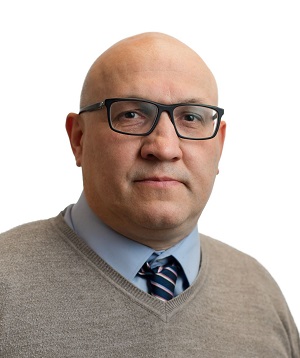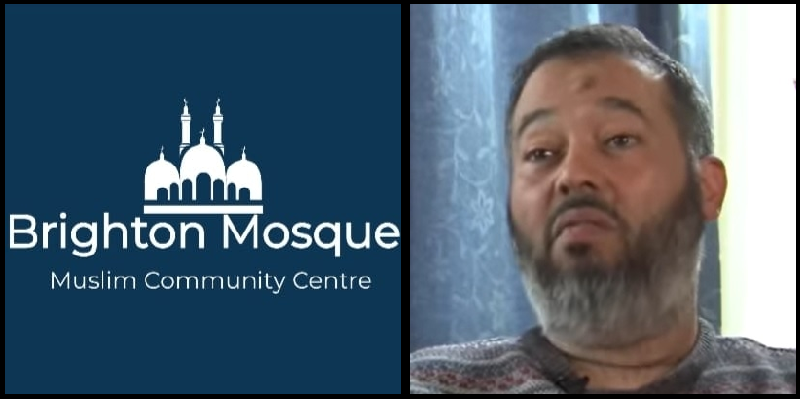Charity regulators in the UK took the unprecedented step of removing the trustees of a mosque located 50 miles from London and putting it under the control of an interim manager. In addition to overseeing the operations of the mosque, the outside manager is charged with choosing a new set of trustees for the institution.
The UK Charity Commission put Andrew Wilkinson from the law firm Shakespeare Martineau in charge of Brighton Mosque and Community Center after its leader, Abubaker Deghayes, a Libyan immigrant to England, was jailed for encouraging terrorism from its pulpit. On November 1, 2020, he had called for jihad “by the sword” before an audience of about 50 people, including children and young adults.
In response to the incitement, the Charity Commission, a statutory body that regulates organizations with charitable status in England and Wales, issued an Official Warning against the mosque in May and launched an inquiry into the mosque in October.
The Commission noted that the impact from the content of the speech delivered by Deghayes was not challenged by another trustee who was present. The Commission ruled that the mosque’s trustees failed to protect the charity and its beneficiaries from abuse. This failure amounted to the facilitation of a terrorism offense, the Commission declared.
Deghayes, 54, from Saltdean in East Sussex, is a British citizen of Libyan decent. He fled to the U.K. in 1986 after being granted political asylum along with his brother Omar, who was subsequently held in Guantanamo Bay between 2002 and 2007 after being arrested in Pakistan. He was released without charge.
Abubaker Deghayes has a history of making problematic statements. In 2006, he told an undercover reporter that he agreed with George Galloway’s statement that it would be “morally justified’ to assassinate then Prime Minister Tony Blair for his support of the invasion of Iraq. He even suggested that Tony Blair was a legitimate target for such an attack.
He made these statements at the Al Quds Mosque in Brighton, which attracted on average 100-200 worshipers for Friday prayers. Deghayes, who was a regular there, was asked if he agreed with Galloway’s statements and responded with: “Yes, I do, I do.” However, he went further and appeared to suggest Tony Blair and George Bush were also “legitimate targets.”
When asked if he had ever prayed for Tony Blair to be attacked, Deghayes responded: “I pray to Allah to support them. Of course, I know anybody who attacks in the name of Islam, Allah will take care of him.” These statements were made in 2006, a year after the July 7, 2005 attacks in which 52 people were killed and over 700 were injured on a London subway.
I know anybody who attacks in the name of Islam, Allah will take care of him.
Abubaker Deghayes
The Deghayes family is well known for its affiliations with terrorist organizations. Three of Abubaker Deghayes’s sons had travelled to Syria in 2014 to join the al-Qaeda affiliate, Jabhat al-Nusra, to fight against the Bashar al-Assad regime in the Syrian Civil War. Two of the sons, Jaffar, 17, and Abdullah, 18, were killed in the conflict.
Following the death of Abdullah, Abubaker is reported to have said his son was a “martyr” and had died “for a just cause.” The remaining son, Amer, 20 at the time, is thought to be still alive in Syria. Deghayes claimed that his sons had travelled to Syria “to help those who are being bombed by Assad and killed by his bombing and air raids.” At one point, Abubaker Deghayes tried to travel to Syria to bring Amer, his last remaining son, back into the UK. In 2014, he complained of having his passport withdrawn by then Home Secretary Theresa May upon his return from Syria.

Paul Stott, Head of Security and Extremism at the think tank Policy Exchange, indicates that Abubaker Deghayes must have connections in Syria to even consider travelling there. Stott, who researched British Jihadis while getting his Ph.D., said that recruits who wanted to join Jahbat al-Nusra needed the support of an existing member of the organization to enlist.
“You could not just turn up in Syria and join the group. That three Deghayes boys were able to do so ought to have raised serious questions either about the family, or the politico-religious environment the boys had been moving in before they left the UK,” Stott said. “You cannot just wander about territory controlled by armed groups, hoping for family reunions. It is entirely understandable that Deghayes senior had his passport withdrawn by the Home Secretary.”
Stott lamented that the Charity Commission’s work is often hindered by accusations of “Islamophobia” and the “demonizing” of Muslim charities.
“The case of Brighton mosque is a reminder that there are important issues involving charities which concern security, extremism and social cohesion in our communities,” he said. “The Commission should be allowed to get on with a thorough investigation.”
The fact Deghayes had a brother in Guantanamo and sons in Syria make it difficult to believe it was not understood who he was and what he was advocating, said security analyst Kyle Orton, who warns that people shouldn’t put too much confidence in the Commission’s ability to fix the problems at the Brighton Mosque.
“The standards of the Charities Commission were clearly breached a long time ago, and it is unfortunately not unusual that the Commission should have acted so late,” he said. “Indeed, it would not be out of character for the Commission if, after a short period and some bureaucratic shuffling, the situation at the Brighton mosque returns to the problematic pre-existing status quo.”
Wasiq Wasiq is a journalist specializing in defense and terrorism. You can follow him on Twitter: @WasiqUK
